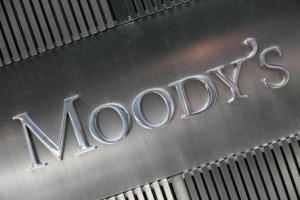Moody’s upgrades Côte d’Ivoire’s sovereign ratings from B1 to Ba3
 Political stability, positive trends in public finance and improvement in governance has earned Cote d’Ivoire an upgrade in its sovereign ratings from B1 to Ba3. The outlook is stable.
Political stability, positive trends in public finance and improvement in governance has earned Cote d’Ivoire an upgrade in its sovereign ratings from B1 to Ba3. The outlook is stable.
According to Moody’s Cote d’Ivoire’s short-term issuer rating of NP was affirmed. The outlook on the long-term ratings has changed to stable from positive.
The rating agency gave three reasons for the upgrade.
The three main drivers of the upgrade Moody’s says are; The consolidation of political stability following successful presidential elections; A positive trend in the country’s public finances, supported by very strong growth prospects; and An improvement in governance and institutional strength;
According to the agency, Côte d’Ivoire’s local currency country ceilings for bonds and deposits remain at Baa3, and its foreign currency country ceilings for bonds and
deposits also remain at Baa3/P-3.
Moody’s notes that the recent and orderly re-election of President Ouattara for a
second five-year mandate substantially dispels political uncertainty over the next five years.
Moody’s states that efforts towards reconciliation will continue during his second mandate, further reducing political risk. While challenges to political stability could arise ahead of the next round of presidential elections in 2020, the agency says it believes that those risks are likely to be contained.
“Sources of such risk could include the division and weakness of the political opposition, uncertainty over the development of a new generation of political leaders, and if economic growth is not more inclusive in the future,” it says.
The second driver of the upgrade Moody’s says is the country’s positive track record in managing its public finances.
Moody’s notes further that, first, the authorities have managed to maintain a low fiscal deficit, while significantly raising public capital expenditure from 2.5 per cent of GDP in 2011 to an expected 7.9 per cent in 2015. Over the same period, the fiscal deficit averaged -2.9 per cent of GDP, close to the average for Ba3 rated sovereigns of -2.5 per cent.
“Such fiscal discipline has been driven by a strong budget performance, supported by a favourable external environment, as well as by improved resource mobilization and better budget execution. Growth in fiscal revenue averaged 22.8 per cent during this period. This explains in part why Côte d’Ivoire’s debt has only slightly increased to an expected 37.5 per cent at the end of 2015 from 34.2 per cent of GDP in 2012, at a time when many Sub-Saharan African peers have recorded
significant increases in debt levels,” it says.
Moody’s indicates that the country’s interest burden has decreased to 7.8 per cent of revenue from 8.9 per cent over the same period.
“This is close to the Ba3 peer median debt-to-GDP of 42.4 per cent and interest payments to revenues of 5.6 per cent. Over the next few years, we anticipate that the debt will hover between 40-45 per cent of GDP,” Moody’s adds.
According to Moody’s this positive trend in the fiscal accounts has been — and is expected to be — supported by strong growth prospects. Between 2012-15 real GDP growth averaged 9.2 per cent, making Côte d’Ivoire one of the three fastest growing countries in the world. During that period, Côte d’Ivoire’s external accounts have been relatively solid, with a current account deficit averaging 1 per cent over 2012-15 (excluding grants) and a balance of payments that is structurally positive.
And it believes that the current period of strong economic growth, following 10 years of subdued growth amid political crisis, will continue under the second term of President Ouattara.
By Emmanuel K. Dogbevi
